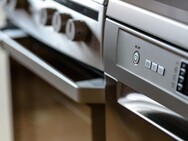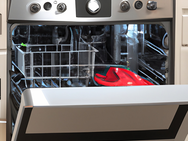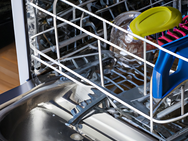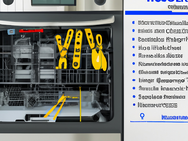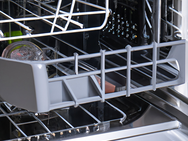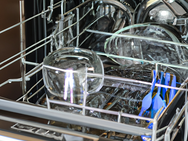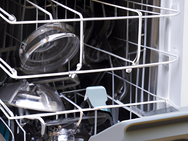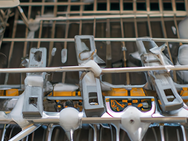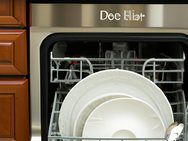Dishwasher motor problems
Dishwasher motor problems can be a nightmare to diagnose. If your Dishwasher is no longer draining, or if you hear an unusual noise coming from the Dishwasher motor, it may be an indication of a malfunctioning motor. If this is the case, you should switch off the Dishwasher and unplug it from the power source immediately. You should then contact a professional repair person who has experience dealing with Dishwasher motor issues and can conduct repairs safely and properly. By doing so, you'll be able to avoid more serious complications down the road and get your Dishwasher up and running in no time! Check your drain hose for malfunctions, your pump and motor are connected together, as well as the door latch can be connected with motor problems.
Dishwasher motor problems can be frustrating and are typically best solved by a qualified technician. Before calling a professional, however, it's helpful to investigate potential causes yourself. First, check the plug connection; if the dishwasher isn't receiving power, the motor won't run. Second, unplug and unscrew the dishwasher unit to make sure that nothing is blocking the spray arm or other components that would prevent the motor from spinning. If neither of these solutions works, then you may have a faulty motor; in this case, professional repair may be necessary. Your wash cycle depends on the water supply. Check your dishwasher door and replace the pump inside the dishwasher. To keep your dishes clean, check your water inlet as your dishwasher may have control panel problems or dispenser problems.
How to diagnose the problem
Dishwasher motor problems can be difficult to diagnose, particularly given the complexity of many modern appliances. To begin troubleshooting dishwasher motor issues, first ensure that the dishwasher is properly connected to the power source and that power is flowing. Next, use a multimeter to check for adequate current flow in key components such as the heating element and circulation motor. If there is a problem with either of these components, it could be affecting the motor and causing the dishwasher to run inefficiently or not at all. Finally, inspect pulleys and drive belts for wear or damage; if any are broken or frayed they will need to be replaced before normal operation can resume.
Diagnosing dishwasher motor problems can seem intimidating. However, several steps can help narrow down the cause. First, check whether the dishwasher is receiving power correctly by unplugging it and plugging it back in. Next, make sure that all the necessary switch controls are turned on and see if the machine will start up when a program is selected. If these do not work, consult the service manual for more specific information on troubleshooting the motor itself. Afterward, use a multimeter to test voltage and incrementally check other components until the faulty part is identified. A qualified technician may then be needed to properly replace or repair any affected parts. With patience and careful observation, you can successfully identify Dishwasher motor problems and take corrective action yourself before involving a technician.
The most common causes of dishwasher motor problems
Dishwasher motor problems can be caused by a variety of different issues, including overloading, incorrect water levels, inadequate power supply, and blockages due to food residue. The most common cause of dishwasher motor issues is a blocked filter or failed heating element. This usually occurs when food particles are not adequately washed away in the cycle and accumulate in the filter, blocking the flow of water inlet valve or even damaging the motor itself. If you suspect your dishwasher has a motor problem, it's important to take action straight away – regular maintenance will avert most motor problems, but can only be successful if done regularly.
Dishwasher motor problems can be a common nuisance in the household. Generally, these motor problems are caused by either physical damage to the motor, worn-out motor parts, or broken seals that allow water within the motor housing. Gradual wear and tear over time will eventually cause the motor to stop functioning, leading to dishwashing detergent not dispersing properly. Additional causes of dishwasher motor problems include running too long without regular maintenance and cleaning cycles being blocked if fill hoses become clogged with food scraps. Motor burnt out can also be an issue due to excessive power supply or temperature regulation failure with the thermostat and safety switch mechanisms in place. Prompt inspection of your dishwasher's internals is key in pinpointing possible faults and preventing further malfunctioning.
How to find the right repair parts
Finding the right repair parts can be a daunting task. Dishwasher motor problems, in particular, can present a unique challenge when seeking out replacement or upgraded components. The best way to ensure that you have the correct parts for your repair job is to research product specifications and read customer reviews. Identifying the part numbers of specific models of dishwashers will help narrow down your search, as well as partnering with local professionals who are intimately familiar with various dishwasher models and their associated parts. Taking the time to understand what you need before purchasing will save both time and money in the long run.
Dishwashers are a blessing to many households. But when their motor stops working, things can go wrong quickly. That’s why it’s important to know how to find the right repair parts for dishwasher motor problems. Fortunately, there are several avenues one can explore when searching for the perfect part - online retailers, appliance stores, and local technicians all offer potential solutions. While it’s always recommended that you enlist the help of a qualified professional in difficult cases, researching parts yourself will help you discern whether the cost of repair is worth it. Taking the time to identify correct and properly functioning components is an essential step towards extending your dishwasher’s life span.
How to fix a dishwasher motor
Dishwasher motor problems can be frustrating to fix, but following the right steps can make the process much easier. Start by troubleshooting the motor with a multimeter so that you can determine what needs to be done for repair. Next, loosen and remove any clamps and wiring attached to the motor so that it can be replaced easily. When installing the new motor, ensure all wires are properly connected and secured using the appropriate tools. Finally, test the repaired dishwasher before using it again to ensure everything is running properly. With these steps in mind, you should be able to successfully fix your dishwasher motor without needing too much professional help!
Dishwasher motor problems can be a real headache, but with the correct knowledge, a DIY-er can easily get to the heart of the issue to find an appropriate fix. The first step is to cut off the power supply to the dishwasher, and then remove its bottom panel so you can access the motor. Once visible, you should be able to check for any faulty wiring or belts that may need to be replaced or tightened. If all looks alright, you could try manually engaging the motor impeller by using an insulated electrical tool and some lubricant if necessary. If nothing works after this point, then it’s advisable to take your dishwasher in for servicing
Other appliance repairs you might need
Dishwashers are an essential part of our daily lives and often require repair. Dishwasher motor problems are among the most common repairs needed; ranging from having a motor that won't start to motors that hum but don't spin. You might also encounter other issues such as clogged supply hoses or door seals. These problems can range from being irritating or inconvenient to potentially creating water damage in your home. Repairing these appliances is best left to a professional who can quickly identify the source of your difficulty, saving you time and energy later on.
Dishwashers are notoriously tricky to repair, especially when there are motor problems. Dishwasher motors can become overheated and stop working, preventing water from draining properly and damaging the seal around the door. Beyond these common issues, dishwashers may also require replacing circuit boards or screens for proper performance. So if your dishwasher is acting up, it's important to have an experienced technician properly diagnose and repair any parts that may be malfunctioning.
ProMaster Appliance Repair Service
No one likes dealing with a broken dishwasher. Whether it's a faulty door seal or a clogged drain pump motor, dishwasher problems can quickly ruin your mealtime routine. Fortunately, ProMaster Appliance Repair Service is here to help. We specialize in dishwasher repair, and our team of experienced technicians is equipped to handle any problem. From simple repairs to complete replacement, we'll get your dishwasher back up and running in no time. Plus, we offer a 100% satisfaction guarantee on all of our work, so you can be confident that you're making the best choice for your home. Contact ProMaster Appliance Repair Service today, and let us take the hassle out of dishwasher repair.
Conclusion
Dishwasher motor problems can be frustrating to fix, but following the right steps can make the process much easier. With these steps in mind, you should be able to successfully fix your dishwasher motor without needing too much professional help!

Tell the code "DC25" and get a discount of $25
The discount applies only to repair services

